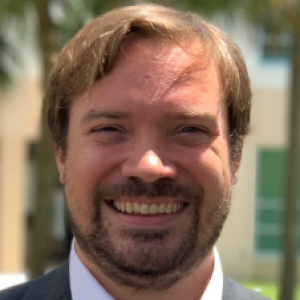Intelligent Digital Container
Intelligent Digital Container (IDC) Solution
PureCipher’s Intelligent Digital Container (IDC) is a pioneering patent-pending solution that leverages our unique Artificial Immune System technology. This advanced approach integrates the security of steganographic watermarking, the resilience of post-quantum safe encryption, and sophisticated cryptography with an intelligent system for threat detection and response. The IDC is engineered to ensure the integrity of the data or applications it encapsulates and maintain the security of the container over time. Inherently designed to be tamper-evident, any unauthorized access or modification attempts are immediately detected and recorded. Additionally, the IDC features stringent access control mechanisms, allowing clients to set and enforce specific permissions for various users and systems, ensuring robust security and control.

USE CASES
Secure AI Model Operations
Generative AI is revolutionizing modern business operations, yet it introduces substantial security risks. Healthcare providers, in particular, struggle to harness AI for valuable insights while safeguarding proprietary data from cloud exposure and third-party AI models. PureCipher’s IDC solution offers a self-contained computing environment where clients can store watermarked data verified as authentic, essential for AI model training. Once the training data is prepared, clients can download IDC containerized Large Language Models (LLMs) and other AI models for secure training. The IDC’s watermarking and access control mechanisms protect the training data and resulting models from unauthorized access or tampering, ensuring data integrity and confidentiality. Additionally, IDC safeguards against unauthorized access, tampering, or theft during model execution, maintaining the confidentiality of the model’s inputs, outputs, and internal processes. By providing its own AI computing environment, IDC effectively addresses and alleviates security and data privacy concerns.

Secure and Compliant Database Transactions
Traditional relational databases face significant security threats, including weak authentication mechanisms, susceptibility to SQL injection attacks, and challenges in verifying the authenticity of data transactions. Addressing these vulnerabilities, the PureCipher IDC offers containerized security adaptable to any existing database system. The IDC for secure and compliant database transactions is structured around a watermarked database container to detect and deter tampering, a hypervisor container that authenticates each transaction, ensuring only legitimate activities proceed, and a secure native application that maintains operational integrity. This approach not only protects the database contents but also secures the legitimacy of every transaction, providing an extra layer of security. Moreover, IDC facilitates effortless rollback capabilities, significantly reducing downtime and recovery costs using legitimate checkpoints, thereby offering a robust solution to the key security challenges of traditional relational databases while ensuring minimal operational disruption and financial impact.



 Linkedin Profile
Linkedin Profile



